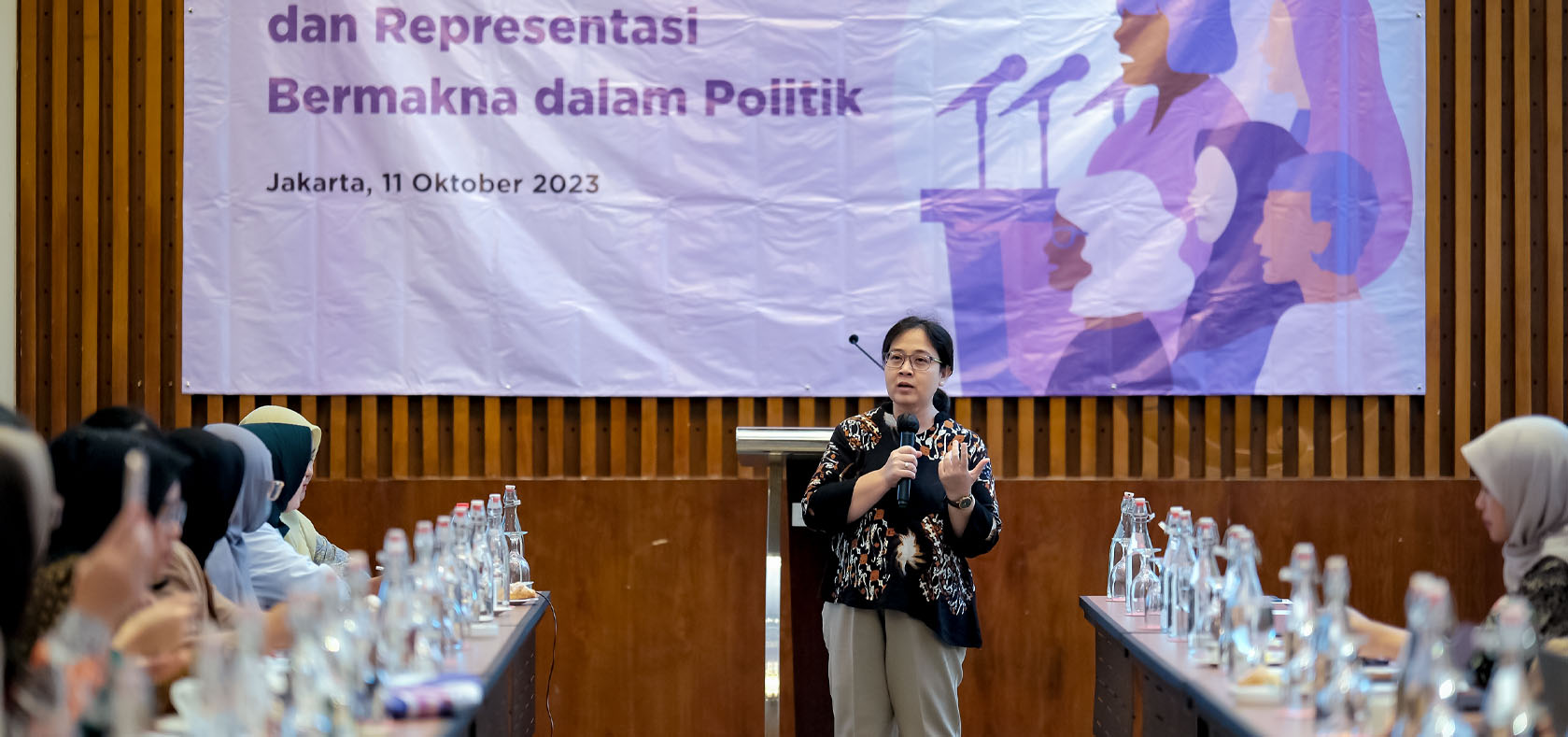Activists, politicians and academics urge cooperation to promote women’s political representation in Indonesia
Date:
Author: Inggita Notosusanto

Jakarta, Indonesia — UN Women Indonesia joined the Indonesian Women's Coalition, the Association for Elections and Democracy, and the Center for Political Studies at the University of Indonesia in organizing the Dialogue Forum of Women Politicians and Civil Society: Promoting Meaningful Participation and Representation in Politics last year.
The 60 participants were women politicians from 15 political parties, including 22 legislative candidates or members of parliament and seven party officials; 31 representatives from civil society organizations; and academic researchers.
Research shows that women's leadership in politics supports social inclusivity and well-being. The United Nations Global Sustainable Development Goals Indicators Database shows that the 10 Member States of the Association of Southeast Asian Nations (ASEAN) have significantly increased women’s representation in their parliaments during the past two decades. Still, it stood at only 22 per cent in 2022, compared with the global figure of 26 per cent.
Women face many sociocultural barriers to participating in politics, and their low representation makes it difficult to promote women's issues in legislation. In 2019, the United Nations Development Programme Gender Inequality Index ranked Indonesia 121 out of 162 countries.
At the forum, women legislative candidates talked about their backgrounds and the sources of inspiration for their political careers. They made recommendations for making progress on four main areas:
- protection of women's rights, including to sexual and reproductive health and rights, access to justice, and socioeconomic rights
- gender and the environment, including energy and climate change
- good governance and women's participation, including in politics and public affairs
- women, peace and security, including concerning social conflicts, particularly those related to elections, misinformation and disinformation, and hate speech targeting women
The forum participants said one of the challenges that women face in Indonesia is the way in which electoral law No. 7 of 2017 is being implemented. The law requires political parties to have at least 30 per cent women in their organizational bodies. But the forum participants said women often are brought in just to fulfill the quota, and then given lower positions instead of leadership positions where they could drive gender-responsive policies.
The leader of the Indonesian Women's Coalition, Mike Verawati, said that political parties, candidates, constituents, and civil society groups need to work together if long-term progress on women and politics is to be achieved.
Regarding women, peace and security, the issue of violent extremism stands out, the forum participants said. One complicating factor, they said, is that women are not only victims of violent extremism but also actors and initiators.
The forum participants, especially the women politicians, said the event helped boost the confidence of legislative candidates to run in the election and to feel that they were supported by civil society organizations.